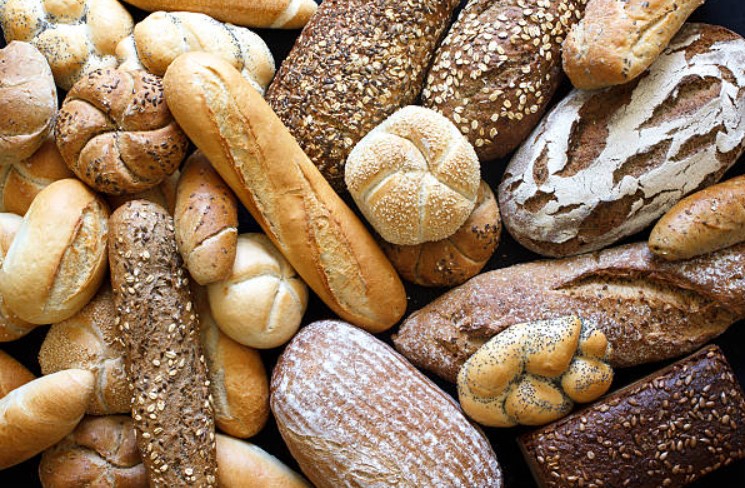
Eliminating gluten has been perhaps the largest health fad of the decade. Many people find these practices beneficial for their weight loss plans, while others do so out of curiosity or because they are intolerant to gluten. Whatever the reason for gluten-free meal adoption, there is ambiguity over the benefits of adopting a gluten-free diet or if gluten is harmful to everyone or only to people with specific medical conditions.
It is obvious that some people, such as those with celiac disease or an intolerance, must avoid it for health reasons. However, many in the health and wellness industry advocate a gluten-free diet for everyone, whether or not they are gluten intolerant. This has caused millions of people to stop eating gluten to reduce their weight, boost their mood, and improve their health.
You might still be unsure if a gluten-free diet is the best option and if gluten is bad for everyone.
What Is Gluten?
Gluten is a protein found in several grains, including wheat, spelt, rye, and barley. Gliadin and glutenin are the two primary proteins found in gluten. These proteins come together in a glue-like network when flour and water are combined. As a result, bread, pasta, pizza, and cereal are frequently included. But gluten doesn’t include any necessary nutrients.
Gluten consumption causes an immunological response in people with celiac disease. When individuals consume meals containing gluten, their digestive tracts and other areas of the body experience inflammation and damage. A gluten-free diet is essential if you have celiac disease to reduce inflammation and symptoms. In the past, it was tougher to maintain a gluten-free diet; however, grocery stores and restaurants regularly provide gluten-free options that approach normal foods in taste and quality.
Is Gluten Bad for You?
There is insufficient solid scientific data to conclude that gluten harms the general public’s health. This signifies that going on a gluten-free diet without a medical condition that necessitates such can cause more harm than good. For example, gluten-free dieters were more likely to eat fewer whole grains, which increased their risk of coronary heart disease.
Who Should Avoid Gluten?
Although gluten is generally safe, patients with specific diseases should avoid it because a gluten-free diet is the only long-term solution that works. As previously stated, those with specific illnesses who avoid gluten have significantly better health and fewer illnesses. Therefore, a gluten-free diet is necessary for them.
- Celiac Disease Patients
The autoimmune condition known as celiac disease harms the small intestine’s lining. Gluten causes an immunological reaction in the small intestine of people with celiac disease. Over time, it can harm the lining of the organ and limit people’s capacity to absorb nutrients from meals. Celiac disease is currently incurable. A lifetime gluten-free diet is the only recognized treatment.
- Dermatitis Herpetiformis Patients
Gluten can cause a severe rash on the elbows, knees, head, buttocks, and body, known as dermatitis herpetiformis. Most persons who suffer from dermatitis herpetiformis also have the same small intestine damage as those with celiac disease.
Dermatitis herpetiformis individuals, however, might not experience digestive symptoms, including diarrhea, nausea, vomiting, or constipation, unlike people with celiac disease.
Dermatitis herpetiformis is best treated with a gluten-free diet, while you may also achieve short-term symptom control with medication. To better understand how to manage this disease, you may need to speak with a specialist at Ravkoo Health.
- Individuals with Gluten Intolerance
A gluten sensitivity different from celiac disease may occur in certain persons. Some have started referring to this as non-celiac gluten hypersensitivity. This is because the small intestine won’t be harmed in people with gluten sensitivity, unlike people with celiac disease.
Those who are said to be gluten intolerant have tested negative (normal) for celiac disease. Yet, they develop symptoms like bloating, diarrhea, or sharp abdominal discomfort whenever they consume gluten-containing foods. One of the causes is a wheat allergy, a condition that practitioners can identify with a skin test. However, the diagnosis is still not certain for many others.
For those with celiac disease, a wheat allergy, or who experience symptoms every time they consume gluten, avoiding gluten meals is the logical thing to do.
Do Others Also Need to Avoid Gluten Meals?
If you don’t have celiac disease and may eat gluten without experiencing any problems, there is no convincing evidence that a gluten-free diet can enhance your health or prevent disease. But, of course, new research might discover that eliminating gluten benefits at least some people who don’t have celiac disease or signs of an intestinal disorder.
In other words, there is no advantage to eliminating gluten from your diet if you are healthy. However, if you decide to follow a gluten-free diet, consult a physician or nutritionist at Ravkoo Health about increasing your consumption of vitamins B6, B12, and D, calcium, and iron.
Are there any drawbacks to avoiding gluten?
Contrary to popular belief, gluten-free meals are not often more nutritious and contain more vitamins and minerals than conventional foods. The issue is that there is little to no evidence to support the notion that certain foods are healthier for you.
Those that don’t include gluten are frequently less fortified with folic acid, iron, and other nutrients than typical foods. Additionally, gluten-free foods typically contain more sugar and fat and less fiber. Therefore, avoiding gluten in your meals may mean consuming more fat and simple carbohydrates while consuming less calcium, B vitamins, and fiber. When beginning a gluten-free diet, many consumers first turn to processed, gluten-free items.
Conclusion
Gluten is generally not harmful to everyone’s health. However, evidence suggests that eliminating gluten may raise your diet of unhealthy fats and carbohydrates while decreasing your intake of essential vitamins and minerals. Gluten should be avoided by those with celiac disease, dermatitis herpetiformis, or gluten sensitivity. You might also wish to speak with an expert practitioner at Ravkoo Health about your symptoms.
Choose whole foods that are inherently gluten-free if you decide to avoid gluten. Avoid packaged gluten-free foods as much as possible because they are frequently extensively processed.







